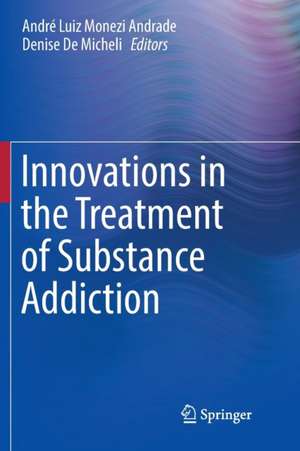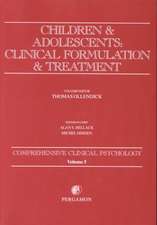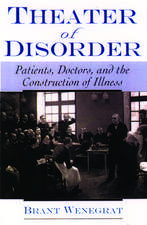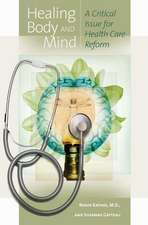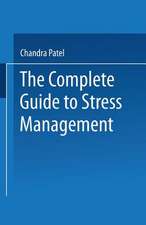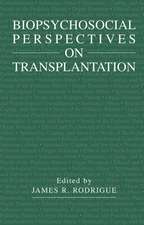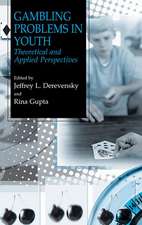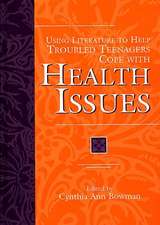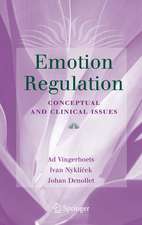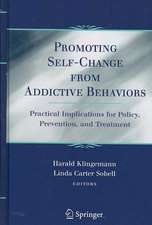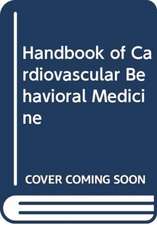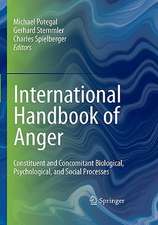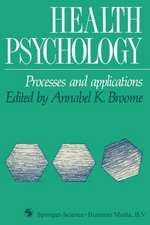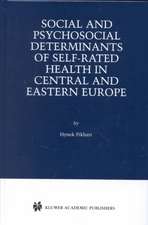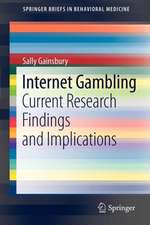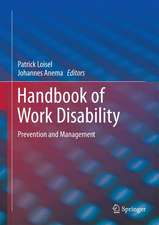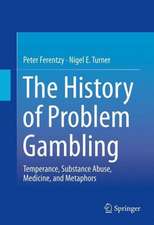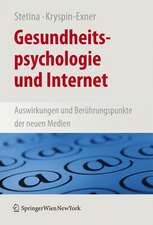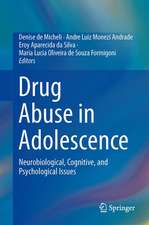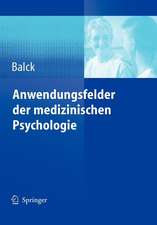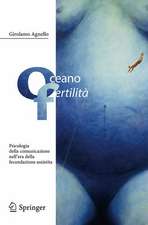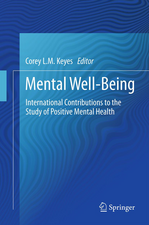Innovations in the Treatment of Substance Addiction
Editat de André Luiz Monezi Andrade, Denise De Michelien Limba Engleză Paperback – 28 iun 2018
Included in the coverage:
· Use of herbal medicine to treat drug addiction.
· EMDR therapy and the treatment of substance abuse and addiction.
· Evaluating the change processes in drug users’ interventions. · Web-based interventions for substance abuse.
· Physical exercise and treatment of addiction.
· Mindfulness to reduce the anxiety during the abstinence
· Neurofeedback to deal with craving and anxiety symptoms
Psychologists, psychiatrists, clinical social workers, and addiction counselors and educators will find Innovations in the Treatment of Substance Addiction a valuable sourcebook for understanding addiction—and intervention—in its wider context.
| Toate formatele și edițiile | Preț | Express |
|---|---|---|
| Paperback (1) | 366.70 lei 6-8 săpt. | |
| Springer International Publishing – 28 iun 2018 | 366.70 lei 6-8 săpt. | |
| Hardback (1) | 373.68 lei 6-8 săpt. | |
| Springer International Publishing – 29 noi 2016 | 373.68 lei 6-8 săpt. |
Preț: 366.70 lei
Preț vechi: 386.00 lei
-5% Nou
Puncte Express: 550
Preț estimativ în valută:
70.17€ • 73.46$ • 58.06£
70.17€ • 73.46$ • 58.06£
Carte tipărită la comandă
Livrare economică 05-19 aprilie
Preluare comenzi: 021 569.72.76
Specificații
ISBN-13: 9783319827520
ISBN-10: 3319827529
Ilustrații: XV, 238 p. 17 illus.
Dimensiuni: 155 x 235 mm
Greutate: 0.37 kg
Ediția:Softcover reprint of the original 1st ed. 2016
Editura: Springer International Publishing
Colecția Springer
Locul publicării:Cham, Switzerland
ISBN-10: 3319827529
Ilustrații: XV, 238 p. 17 illus.
Dimensiuni: 155 x 235 mm
Greutate: 0.37 kg
Ediția:Softcover reprint of the original 1st ed. 2016
Editura: Springer International Publishing
Colecția Springer
Locul publicării:Cham, Switzerland
Cuprins
Substance use disorder: an overview.- Neural basis of drug addiction.- Traditional pharmacotherapy of substance abuse.- New pharmacotherapies for treating substance abuse.- Using phytotherapy to treat substance abuse: from efficacy to evidence.- Eye movement desensitization and reprocessing (EMOR) in substance abuse treatment.- Transcranial magnetic stimulation in the treatment of substance abuse.- A multidimensional approach to mindfulness in the treatment of substance use disorders.- Physical activity as a potential treatment for drug abuse.- Web-based interventions to treat substance abuse disorders.- Nutritional aspects of substance abuse.- Acupuncture and substance abuse.- Hypnosis and substance abuse.- Biofeedback therapy for substance abuse.- Yoga for substance abuse.
Recenzii
“The intended audience includes students and professionals who are interested in the pharmacology and physiology of addiction as well as selected and alternative treatments that are available. … the text provides a refresher to many and some new information to all and is worthwhile reading for students new to the field and those coming to the end of their careers.” (Heidi Israel, PsycCRITIQUES, Vol. 62 (16), April, 2016)
Notă biografică
André Luiz Monezi Andrade obtained a bachelors degree in psychology at Universidade Positivo and a masters degree at Universidade Federal de São Paulo, and currently is finishing his doctoral studies at Universidade Federal de São Paulo focusing on neurobiology of addiction in adolescence. He is a professor in the Department of Psychology at Universidade Anhembi Morumbi with special focus on psychopathology and psychopharmacology in adolescents. \
Denise De Micheli obtained a bachelor's degree in psychology at Universidade Paulista and masters and doctoral degrees at the Universidade Federal de São Paulo. A professor in the Department of Psychobiology at Universidade Federal de São Paulo, she also serves as chief of the Interdisciplinary Centre of Studies in Neuroscience Adolescent Health and Education and is a member of the Association for Medical Education and Research in Substance Abuse.
Eroy Apericida da S
ilva obtained a bachelors degree in psychology by Universidade Paulistana and masters and doctoral degrees at the Universidade Federal de São Paulo. He is a professor in the Department of Psychology at the Universidade Federal de São Paulo, where he also serves as Chief of Cognitive Therapies on Substance Abuse at Unidade de Dependência de Drogas (UDED).
Denise De Micheli obtained a bachelor's degree in psychology at Universidade Paulista and masters and doctoral degrees at the Universidade Federal de São Paulo. A professor in the Department of Psychobiology at Universidade Federal de São Paulo, she also serves as chief of the Interdisciplinary Centre of Studies in Neuroscience Adolescent Health and Education and is a member of the Association for Medical Education and Research in Substance Abuse.
Eroy Apericida da S
ilva obtained a bachelors degree in psychology by Universidade Paulistana and masters and doctoral degrees at the Universidade Federal de São Paulo. He is a professor in the Department of Psychology at the Universidade Federal de São Paulo, where he also serves as Chief of Cognitive Therapies on Substance Abuse at Unidade de Dependência de Drogas (UDED).
Textul de pe ultima copertă
Emerging approaches to treating addictions and minimizing relapse are spotlighted in this idea-packed volume, as alternatives or adjuncts to standard psychological and pharmacological therapies. Its biopsychosocial perspective delves into the causes and processes of chemical dependence, and the clinical characteristics it shares with other addictions (e.g., food, sex, gambling, online activities), to identify client needs that substance abuse may fulfill. Accordingly, the diverse modalities featured here address substance addiction on multiple levels, offering clients physical or mental stimulation and/or emotional relief as well as affording different degrees of autonomy. Methods can be mixed and matched to reinforce treatment goals, and clinicians can tailor treatment to individual issues and interests to assure clients nuanced and meaningful care.
Included in the coverage:
· Use of herbal medicine to treat drug addiction.
· EMDR therapy and the treatment of substance abuse and addiction.
· Evaluating the change processes in drug users’ interventions. · Web-based interventions for substance abuse.
· Physical exercise and treatment of addiction.
· Mindfulness to reduce the anxiety during the abstinence
· Neurofeedback to deal with craving and anxiety symptoms
Psychologists, psychiatrists, clinical social workers, and addiction counselors and educators will find Innovations in the Treatment of Substance Addiction a valuable sourcebook for understanding addiction—and intervention—in its wider context.
Included in the coverage:
· Use of herbal medicine to treat drug addiction.
· EMDR therapy and the treatment of substance abuse and addiction.
· Evaluating the change processes in drug users’ interventions. · Web-based interventions for substance abuse.
· Physical exercise and treatment of addiction.
· Mindfulness to reduce the anxiety during the abstinence
· Neurofeedback to deal with craving and anxiety symptoms
Psychologists, psychiatrists, clinical social workers, and addiction counselors and educators will find Innovations in the Treatment of Substance Addiction a valuable sourcebook for understanding addiction—and intervention—in its wider context.
Caracteristici
Provides essential new approaches to complement the traditional treatment and management of drug abuse Discusses the scientific evidence for as well as the limitations of these approaches Intended for a broad audience, from undergraduate students to experienced professionals Includes supplementary material: sn.pub/extras
